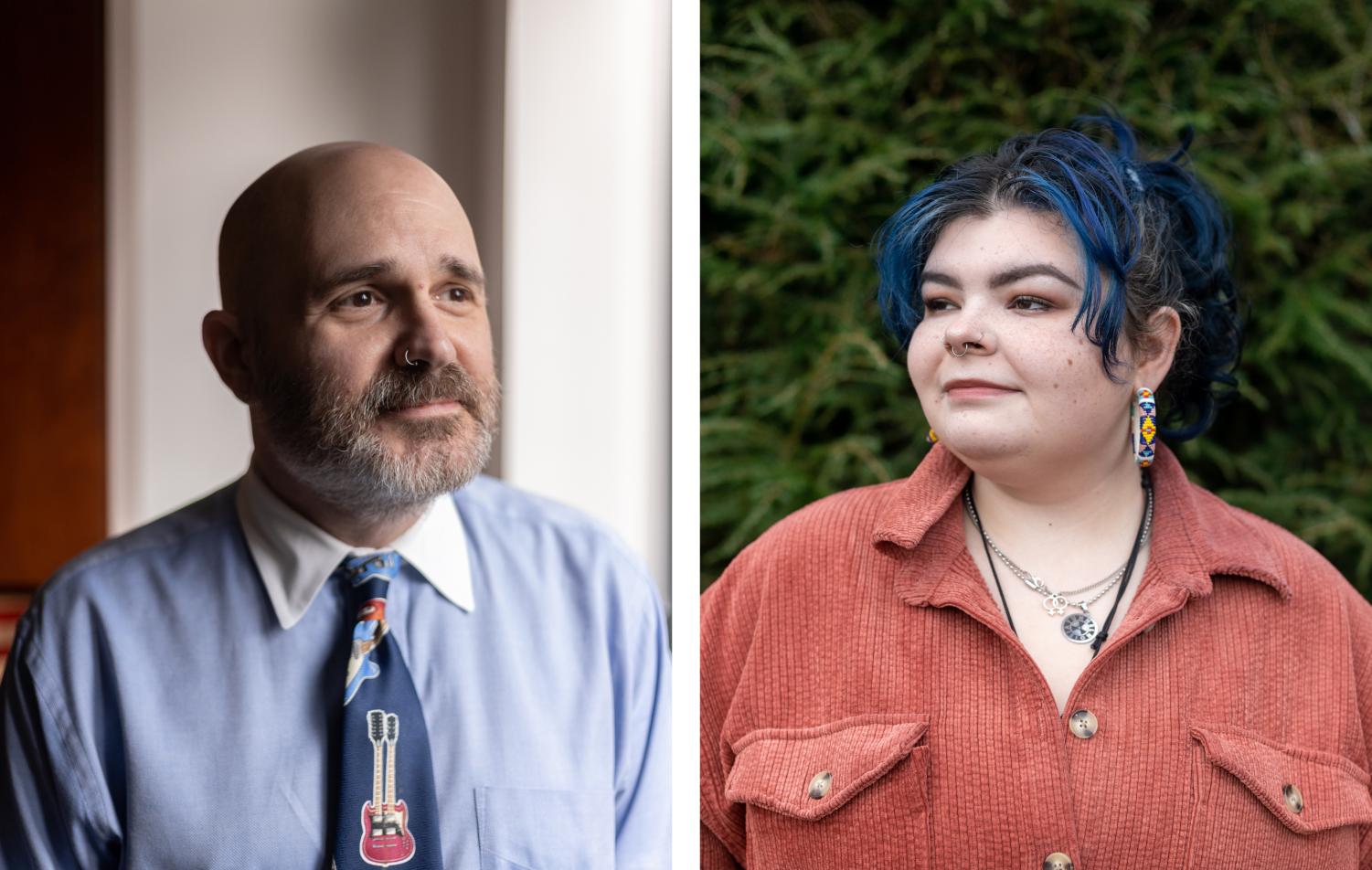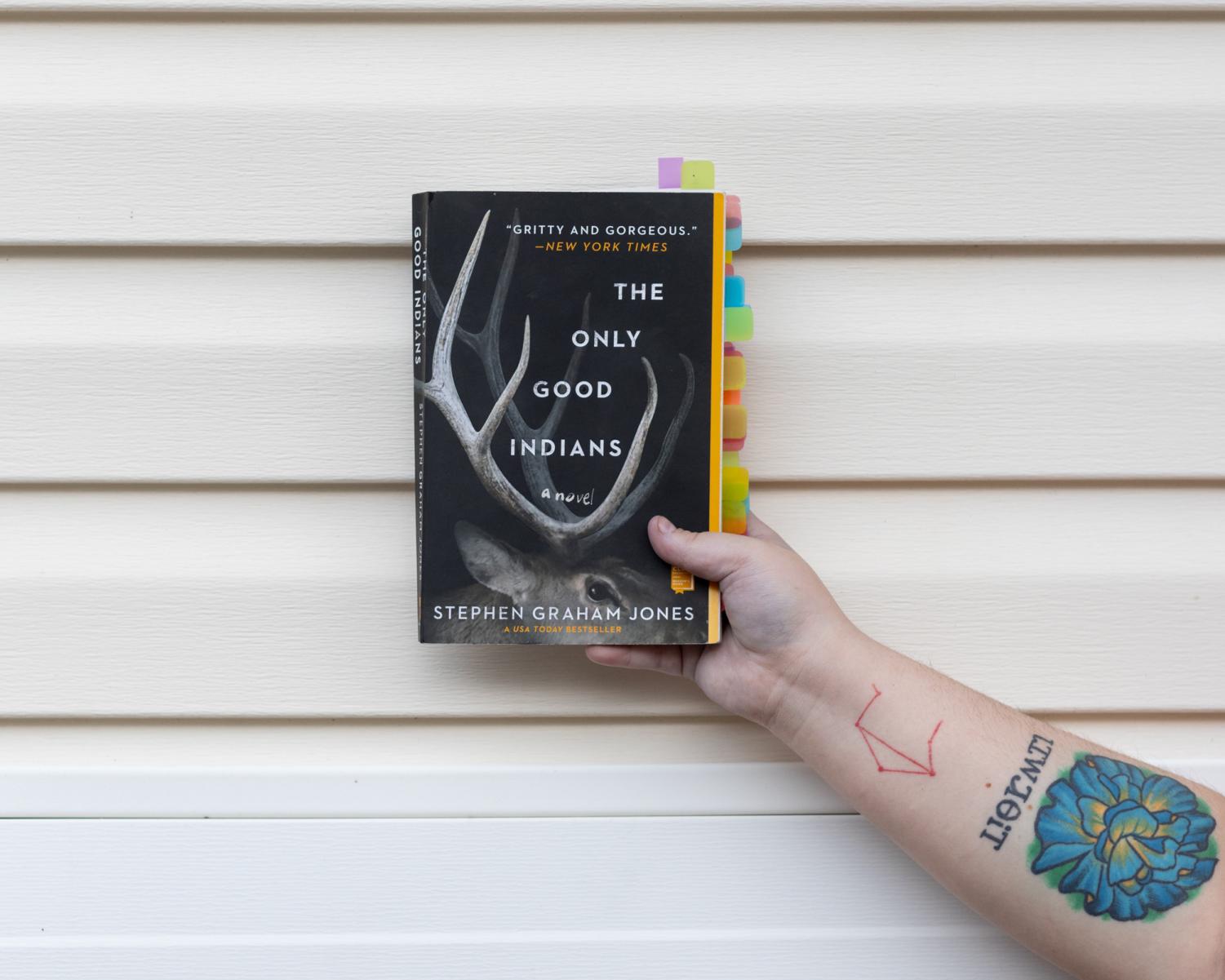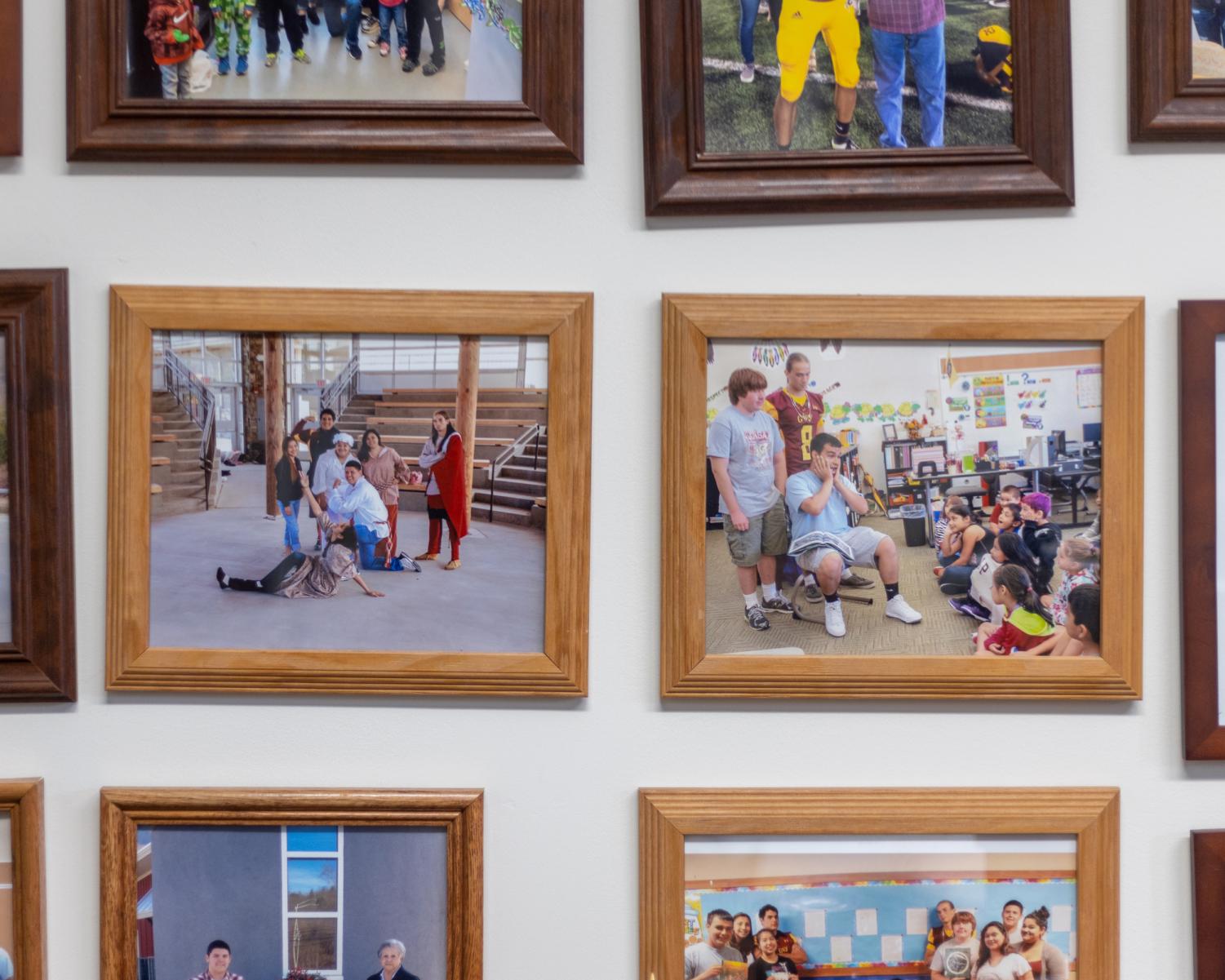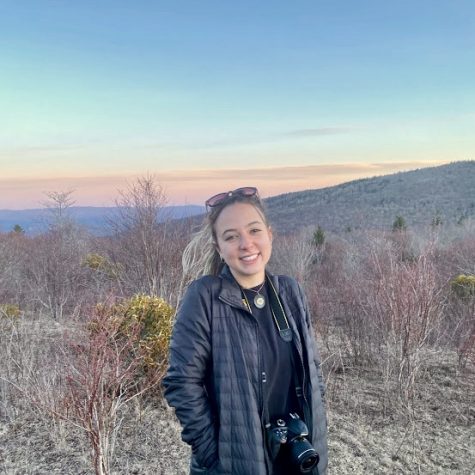App State professor highlights importance of Native American history

A professor is sharing positive stories about Native American history for students in Appalachia.
Allen Bryant, associate professor in the Reich College of Education, said as director of the Gadugi Partnership, he designs and teaches college-level courses to students at Cherokee High School about Cherokee history and culture.
“We’re trying to improve the number of eastern Cherokee students who go to college and also improve the numbers of those who succeed when they get there,” Bryant said.
Bryant said U.S. history classes do a poor job of teaching Cherokee history, and some states, including Georgia and Tennessee, have passed laws limiting discussions of racism and negative aspects of U.S. history in classrooms.
While Bryant said history can repeat itself if people are not informed, he makes sure to teach his students positive moments and people in history, not just the negative stories.
“It’s a way for me to remind Native students that their history is not just one long line of sad tragedy failures,” Bryant said. “Their history is also filled with unbelievable leaders and brilliant men and women, and that there’s so much there about which they should be extraordinarily proud.”
The Celebrating Sequoyah Speaker Series highlights the 200th anniversary of Sequoyah’s creation of the Cherokee written language throughout the semester, with three speakers sharing how they are working to keep the language alive.
The series began Sept. 15 and ends Nov. 10 during Native American Heritage Month with Cherokee linguist James Standingdeer.
Bryant said learning about Native American history in the Appalachian region is important because App State is located on what once was Indigenous land.
Anna Oakes, App State media relations specialist, wrote in an email that Chancellor Sheri Everts told the Land Acknowledgement Working Group, led by Interim Chief Diversity Officer Jamie Parson, to develop a statement “that acknowledges the Indigenous peoples who are the original inhabitants of the lands on which our campus is located.”
“The working group, which includes Indigenous faculty as well as faculty for whom Indigenous studies is their area of research, will invite the state and federally-recognized tribes in the area, as well as several Indigenous community organizations, to provide feedback on the statement,” Oakes wrote.
Oakes also wrote that the statement will include recommendations for how the university can commit to the success of Indigenous faculty, staff and students.
“Native culture in our area still permeates so much of what we do,” Bryant said. “The most serious form of racism that native students face right now is the feeling of invisibility.”
After starting a search for Cherokee books written by female authors on Amazon by typing in “Cherokee women,” Bryant said one suggested search option was “Cherokee women costumes.”
“I thought, ‘okay, what is this?’” Bryant said. “And so I clicked on it, and it was these disgraceful, so-called ‘sexy Indian’ costumes. You just look at it, and you can’t imagine that we’re still dealing with this kind of stupidity in 2021.”
He said several of his students have talked to him about racist comments made to them, such as being asked if they live in tipis.


In addition to cultural racism, Bryant said actions such as the theft and destruction of timber in eastern Cherokee land in the early 1900s were done to Native American people, but everyone is paying the price today.
A Washington Post analysis published in September found one in three Americans lived in a county impacted by a “weather disaster” from June to August.
On top of that, according to the United Nations, “Indigenous peoples are among the first to face the direct consequences of climate change.”
This is the experience of the Isle de Jean Charles band of the Biloxi-Chitimacha-Choctaw tribal community in Louisiana, who have been in the process of relocating from their island as it shrinks from erosion.
Members of the tribe still living on the island were left homeless after Hurricane Ida hit the Louisiana coast in August. The destruction of Ida was second only to Hurricane Katrina.
Albert Naquin, the tribe’s chief, said the hurricane damaged all of the homes on the island and all but one of the residents now live with nearby family members.
The effects of Hurricane Ida on the tribe worsened due to the unfinished federally funded resettlement project.
Naquin said the original plan was to create a green community for the tribe to live together off of the island, but after five and a half years, no homes have been built.
“This resettlement, to me, is a joke because we were supposed to put our people together, and now they just separated us,” Naquin said.
Naquin spoke at App State in 2018 on the unequal distribution of the effects of climate change as part of Climate Justice Month.
“His community is not among the people who are contributing most to the causes of climate change,” said Laura England, a practitioner in residence in the Department of Sustainable Development. “Their lifestyles are much less contributing to the problems driving climate change, yet they’re experiencing the harms earlier and in much more significant ways than the rest of us.”
England said this climate injustice is global, and we are in this together because of our shared atmosphere and climate system.
In September 2018, when Hurricane Florence headed toward Boone, Naquin reached out with a message to England that said, “I sure hope all is well with all of my Appalachian friends. Be safe and know that I am thinking of all of you on the east coast.”
England said the gesture was “emblematic of the generosity of Chief Naquin” as his community was losing their homeland at the same time.
Bryant said people are headed for a grim future if they don’t acknowledge climate racism.
“Native people are not some ancient relic of America’s past,” Bryant said. “There are still thriving, remarkable, beautiful, amazing native communities. Let’s celebrate them. Let’s talk about them. Let’s learn from them. And then let’s get to work in honoring and protecting them in any and every way that we can.”
We hope you appreciate this article! Before you move on, our student staff wanted to ask if you would consider supporting The Appalachian's award-winning journalism.
We receive funding from the university, which helps us to compensate our students for the work they do for The Appalachian. However, the bulk of our operational expenses — from printing and website hosting to training and entering our work into competitions — is dependent upon advertising revenue and donations. We cannot exist without the financial and educational support of our fellow departments on campus, our local and regional businesses, and donations of money and time from alumni, parents, subscribers and friends.
Our journalism is produced to serve the public interest, both on campus and within the community. From anywhere in the world, readers can access our paywall-free journalism, through our website, through our email newsletter, and through our social media channels. Our supporters help to keep us editorially independent, user-friendly, and accessible to everyone.
If you can, please consider supporting us with a financial gift from $10. We appreciate your consideration and support of student journalism at Appalachian State University. If you prefer to make a tax-deductible donation, or if you would prefer to make a recurring monthly gift, please give to The Appalachian Student News Fund through the university here: https://www.givecampus.com/campaigns/54088/donations/new?designation_id=faa93386&

Cameron Stuart (she/her) is a senior journalism and sustainable development double major and French minor from Rock Hill, S.C. This is her fourth year...

Kara Haselton (she/her) is a senior Interdisciplinary Studies (self-design, photojournalism and social justice) major from Raleigh, NC.
